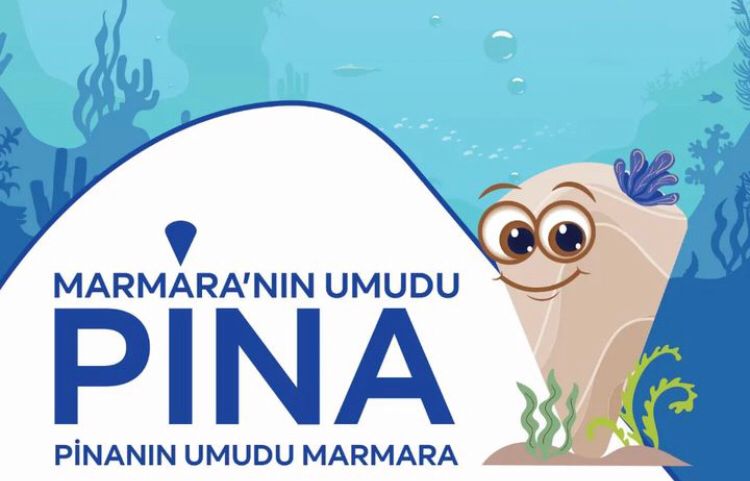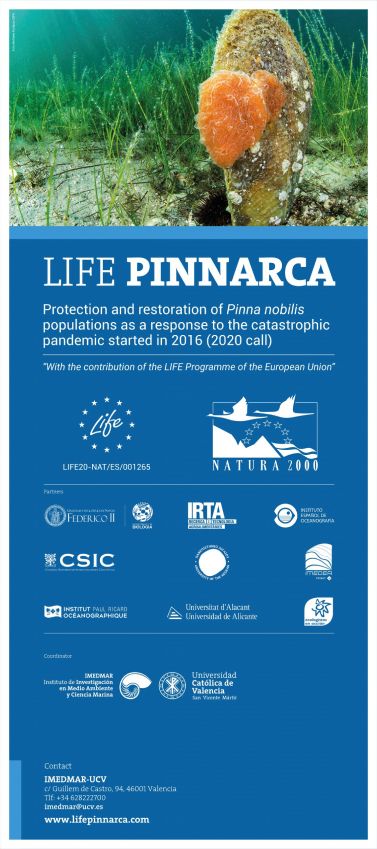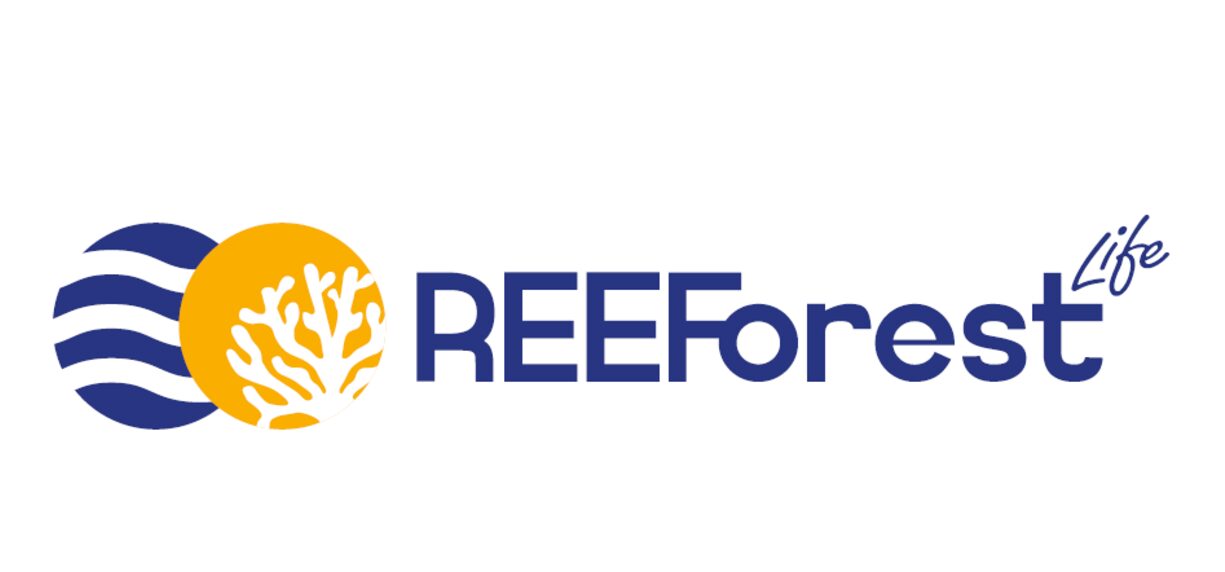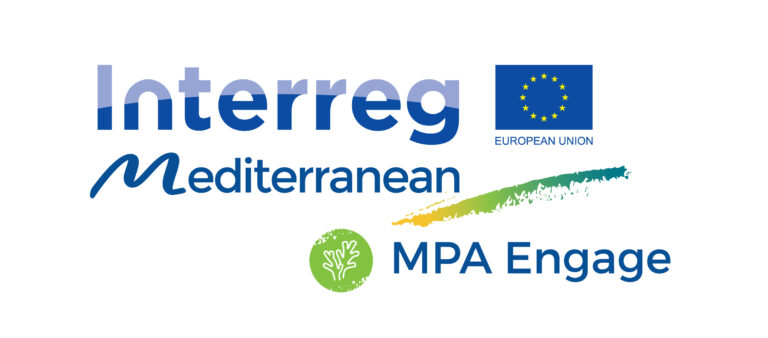HOPE PINNA (UMUT PINA)
Period: 2020 –2025
Supporters: Borusan Group, Impact Hub, Bandırma Onyedi Eylül Üniversitesi, Erdek Diving Club, Turkish Ministry of Environment, Urbanization and Climate Change.
The aim of the project is to monitor the stocks of Pinna nobilis resident in the Sea of Marmara, a small basin of saltwater that separates the Aegean Sea from the Black Sea and, on a larger scale, Europe from Asia. Due to the peculiarities of the currents that flow through it and the nutrient richness of its waters, this sea constitutes a preferred habitat for the large bivalve, of which hosts significant populations. In the same time, it’s a body of water highly exposed to intense human activities in the area, particularly wastewater discharges and maritime traffic, as well as the effects of climate change. Recently, the proliferation of mucilage has caused a genuine environmental emergency. In addition to surveying existing populations and assessing their health status, Pinna Hope also intends to develop effective conservation strategies for surviving Pinna stocks, contribute to the sustainable use of marine resources in the Sea of Marmara and increase the awareness of Pinna through dissemination activities, included citizen science initiatives.







